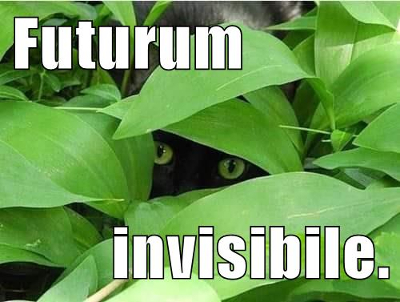You might also have noticed that I have switched the review slideshows in the sidebar. Previously, they were divided into feminine and masculine words, but now you have learned some neuter nouns also! So, what I have done is to reorganize the words based on the declensions: there is a slideshow for Declensions 1 and 2, and a slideshow for Declensions 3, 4 and 5.
Later on, you will see just why I have put Declensions 1 and 2 together, and why Declensions 3, 4 and 5 are together. For now, just keep using those slideshows to do some review whenever you have a few minutes; they are a way to focus on specific words while also reviewing the sayings. I'll embed them here in the blog post too:
Declensions 1-2
Declensions 3-4-5
And here are today's new proverbs:
1. Dulce otium.
Leisure (is) sweet.
dul-ce O-tium
You saw dulce yesterday in this saying: Non omne dulce bonum.
1. Dulce otium.
Leisure (is) sweet.
dul-ce O-tium
You saw dulce yesterday in this saying: Non omne dulce bonum.
The Latin noun otium, "leisure, ease" gives us English "otiose."
This word otium is a very important part of Roman vocabulary. Their word for business, negotium, is the negation of otium: nec-otium, "not leisure." It's almost like they were craving leisure every time that they mentioned business, negotium, "un-leisure."
2. Natale solum dulce.
(Your) native land (is) sweet.
na-TA-le solum dulce
The adjective natale, "by birth, native," is related to two Latin words you have seen before: natus, "born," and natura, "nature." From the Latin adjective we get the English word "natal" and "neonatal."
2. Natale solum dulce.
(Your) native land (is) sweet.
na-TA-le solum dulce
The adjective natale, "by birth, native," is related to two Latin words you have seen before: natus, "born," and natura, "nature." From the Latin adjective we get the English word "natal" and "neonatal."
The word solum is another one of those homographs in Latin! This is the neuter noun solum, which means "land, ground, soil," with a short o. There is also a neuter adjective solum, with a long o (sōlum) which means "alone, solitary." Both of these words are quite common, so you will need to learn to use context to distinguish between them.
This phrase is part of the Taylor family coat of arms.
3. Inevitabile est fatum.
Fate is unavoidable.
inevi-TA-bile est fatum
The neuter adjective inevitabile is a compound: in-evitabile, "un-avoidable" (the verb evitare means "to avoid"). From the Latin adjective we get English "inevitable."
3. Inevitabile est fatum.
Fate is unavoidable.
inevi-TA-bile est fatum
The neuter adjective inevitabile is a compound: in-evitabile, "un-avoidable" (the verb evitare means "to avoid"). From the Latin adjective we get English "inevitable."
The neuter noun fatum, "fate," gives us both English "fate" and also "fatal." The Latin word comes from the verb fari, meaning "to speak," so fatum was originally a decree spoken by the gods, a divine pronouncement or oracle.
Because fatum was especially associated with the end of life, you could even translate this phrase as "Death is inevitable."
4. Futurum invisibile.
(The) future (is) invisible.
fu-TU-rum invi-SI-bile
The neuter adjective futurum is being used as a noun here, "(the) future." And yes, this is the source of English "future." As you will learn later, futurum is a participle in Latin; it is actually a future participle, something we do not have in English.
4. Futurum invisibile.
(The) future (is) invisible.
fu-TU-rum invi-SI-bile
The neuter adjective futurum is being used as a noun here, "(the) future." And yes, this is the source of English "future." As you will learn later, futurum is a participle in Latin; it is actually a future participle, something we do not have in English.
The neuter adjective invisibile is another compound: in-visibile, "not see-able," as in the English word "invisible."
You can see this motto in the Earl of Bath's coat of arms.
5. Heu, heu, praeteritum non est revocabile tempus.
Alas, alas, past time is not able to be called back.
heu, heu, prae-TE-ritum non est revo-CA-bile tempus
The word heu is an exclamation of despair or woe, much like English "alas!"
5. Heu, heu, praeteritum non est revocabile tempus.
Alas, alas, past time is not able to be called back.
heu, heu, prae-TE-ritum non est revo-CA-bile tempus
The word heu is an exclamation of despair or woe, much like English "alas!"
The neuter adjective praeteritum is a compound: praeter-itum, "by-gone," which means "past," just like English "bygone." You can see this Latin word in the English "preterite."
The neuter adjective revocabile is also a compound: re-vocabile, "re-callable," i.e. something that you can call back, something that you can recall. You can see this Latin word in English "revocable."
The neuter noun tempus, "time," is a third-declension neuter noun, which is why it requires neuter adjectives: praeteritum and revocabile. From this Latin root we all the -temp- words in English like "temporal" and "temporary" and "contemporary."
This is a line of dactylic hexameter poetry by Poliziano, written for the clock at the Church of Santa Maria Novella in Florence; here's a photo.
I hope you enjoyed today's sayings; here's a recap:
And here is today's audio:
Plus the LOLCats!
I hope you enjoyed today's sayings; here's a recap:
- Dulce otium.
- Natale solum dulce.
- Inevitabile est fatum.
- Futurum invisibile.
- Heu, heu, praeteritum non est revocabile tempus.
Plus the LOLCats!





No comments:
Post a Comment
Comments are limited to Google accounts. You can also email me at laurakgibbs@gmail.com